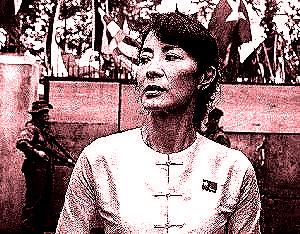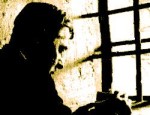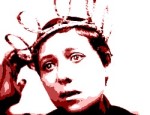Film Review

And you don't have to wait that long until your worst fears about the film are confirmed. Within the first fifteen minutes, Besson's aversion for understatement and his tendency for pumping dramatic excess into every frame is painfully evident; any hopes that we may have had that The Lady was going to offer some serious insights into the psychology and life experiences of an exceptional world figure is pretty well decimated by the film's midpoint (although, to be fair, the film does improve marginally thereafter). Besson's attempts to play the auteur (through such clumsy devices as the narrative flashback, which merely weaken the storyline and give the spectator a headache) help to draw our attention away from the weaknesses in the screenwriting, but do little to assist the film's coherence. Eric Serra's score is just as heavy-handed - this ladles on the sentimentality to such a degree that the film's more genuinely stirring moments (and there are quite a few of these towards the end of the film) are rendered slightly false and unconvincing.
The Lady is by no stretch of the imagination a serious biopic. For all its lavish production values and cinematic grandeur, it does not even begin to scratch the surface of Aung San Suu Kyi's complex persona and account for her remarkable personal resolve and determination to see democracy take root in her country. Rather, it is more in the line of an old-fashioned Hollywood melodrama, a powerfully moving tale of love and selfless commitment in which two ordinary people have their lives torn apart by extraordinary events. If Besson and his screenwriter Rebecca Frayn had reined in their ambitions a little and focussed more on the human story that lies at the heart of the drama The Lady might have been something very special. As it is, it is just too showy with its grand set-pieces, too simplistic in its depiction of both Burma's political crises and the protagonists' feelings to ring true - in spite of a compelling central performance from Michelle Yeoh and the evident sincerity which she and her director bring to the film.
The Lady's one saving grace is that, being an unashamed piece of populist cinema rather than an obscure art house offering, it has helped to spread awareness of the plight of Aung San Suu Kyi and her troubled country, which can be no bad thing. For those who like their film dramas to have some meat on them, the film is somewhat lacking, unable to get much beyond Manichean simplification, making its heroine out to be a latter-day saint whilst portraying her opponents as little more than pantomime villains. How frustrating that the film is content merely to rely on tacky sentiment-milking instead of plunging us into a plausible semblance of the emotional abyss that Aung San Suu Kyi shared with her husband Michael Aris as they fought for what what they believed to be right. The real story of Aung San Suu Kyi is one that has yet to be told. Besson's film is a mere hors d'oeuvre for the feast that is yet to come.
© James Travers 2011
The above content is owned by frenchfilms.org and must not be copied.
Film Synopsis
It is a love story almost without precedent, involving a man, Michael Aris, and an exceptional woman, Aung San Suu Kyi, who sacrificed her own personal happiness for the good of her people. In spite of the traumas these two people experienced - their separation, their ill-treatment by Burma's brutal political regime - nothing could lessen their love. It is also the story of a woman who was to become one of the most enduring symbols of a nation's fight for democracy...© James Travers
The above content is owned by frenchfilms.org and must not be copied.
Similar Films
Here are some other films you may enjoy watching:- Camille Claudel, 1915 (2013)
- Nannerl, la soeur de Mozart (2010)
- Séraphine (2008)
- Aliker (2009)
- Cloclo (2012)
Other related links:
Film Credits
- Director: Luc Besson
- Script: Rebecca Frayn
- Cinematographer: Thierry Arbogast
- Music: Eric Serra
- Cast: Michelle Yeoh (Aung San Suu Kyi), David Thewlis (Michael Aris), Jonathan Raggett (Kim Aris), Jonathan Woodhouse (Alexander Aris), Susan Wooldridge (Lucinda Philips), Benedict Wong (Karma Phuntsho), Flint Bangkok (Nyo Ohn Myint), Guy Barwell (Military Policeman), Sahajak Boonthanakit (Leo Nichols), Antony Hickling (BBC journalist), William Hope (James Baker), Teerawat Mulvilai (Soldier), Agga Poechit (Tan Shwe), Victoria Sanvalli (Ma Then), Nay Myo Thant (Win Thein), Danny Toeng (Colonel Than Tun), Dujdao Vadhanapakorn (Nita May), Frank Walmsley (BBC Journalist), Marian Yu (Daw Khin Yi), Bruce Blain (Party Guest)
- Country: France / UK
- Language: English
- Support: Color
- Runtime: 127 min
The best films of Ingmar Bergman

The best French Films of the 1920s

The very best of French film comedy
